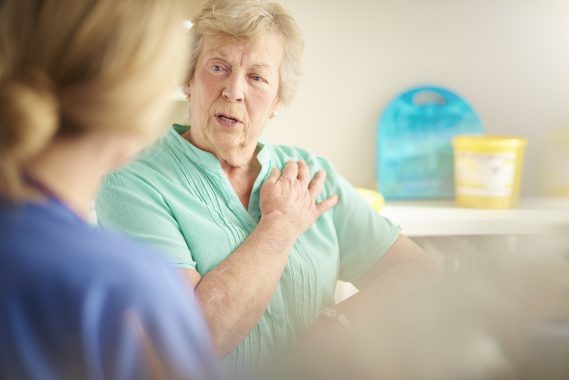Women and deprived communities undertreated for heart valve disease

Women and people from deprived communities with heart valve disease are less likely to be referred by their GP for specialist care, research has shown.
Alongside those from ethnic minority groups, women are also less likely to have intervention for aortic stenosis, the study of more than 154,000 patient records concluded.
Presenting the research at the British Cardiovascular Society conference in Manchester, the researchers from the University of Leicester said that women were 11% less likely than men to be referred to secondary care after their diagnosis.
They were 39% less likely to have a procedure to replace their aortic valve, the analysis which used anonymised GP records from 2000 to 2022 showed.
Overall, women were older at diagnosis of heart valve disease, and those from ethnic minority groups and the most deprived quintile were younger, the team found.
The study also showed that South Asian and Black patients are more likely to be referred to secondary cardiac care, but less likely to undergo aortic valve intervention.
The analysis also showed that the patients living in the most deprived areas were 7% less likely to be referred for secondary care after their diagnosis compared to patients in the least deprived areas, and 4% less likely to undergo a procedure to replace their aortic valve.
It follows warnings last year from UK experts that women are underdiagnosed and undertreated in all areas of cardiovascular disease.
Better awareness of heart valve disease risk and presentation among healthcare professionals is needed to tackle the ‘unconscious bias’ that heart disease is a man’s condition, the joint British Cardiovascular Societies’ said at the time.
Dr Anvesha Singh, associate professor at the University of Leicester and a consultant cardiologist, said previous studies had shown lower rates of valve replacement in women, and clinicians had assumed that women were less likely to be diagnosed with aortic stenosis.
‘This analysis using large, real-word data clearly shows that this is not the case, giving us the clearest picture yet of what is happening in day-to-day clinical practice.
‘Our study highlights potential inequities in management and care of this common and serious condition. More research is needed to understand the reasons for this and the true prevalence of aortic stenosis in different groups.’
Dr Sonya Babu-Narayan, clinical director at the British Heart Foundation, said: ‘This study of over 150,000 GP records has unveiled disparities in access to aortic valve treatment for women, South Asian and Black people, and people living in more deprived communities.
‘We don’t yet have the full picture, but these findings are concerning, and we need more research to understand what is driving the differences seen.
‘This will be crucial to enable action to address any underlying causes are stopping some people from having access to the heart valve treatment and care they need when they need it.’
Portfolio careers
What is the right portfolio career for you?

Visit Pulse Reference for details on 140 symptoms, including easily searchable symptoms and categories, offering you a free platform to check symptoms and receive potential diagnoses during consultations.












